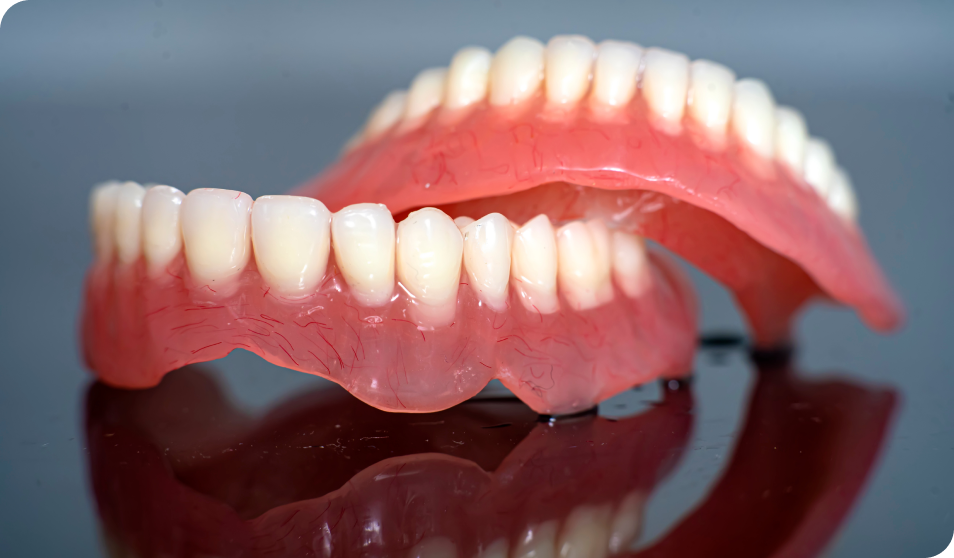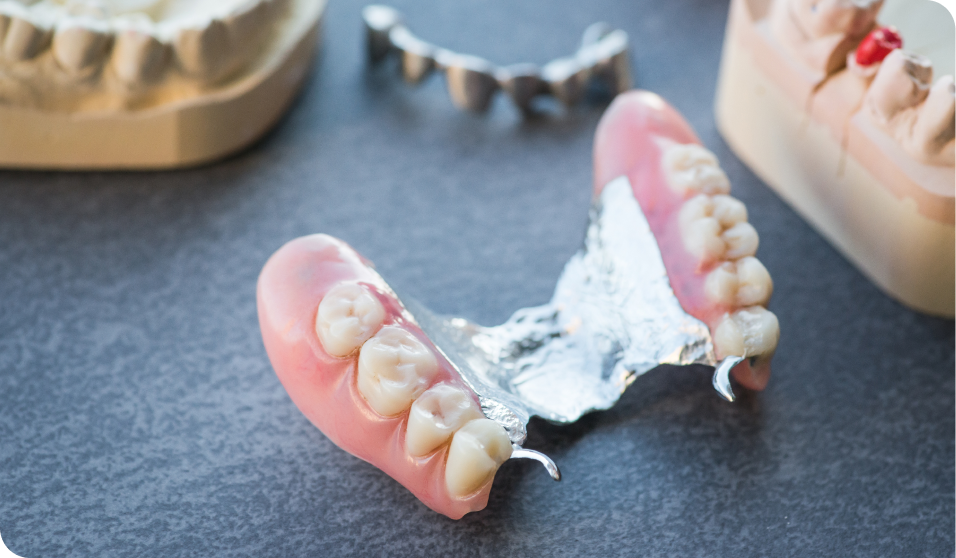At Living Water Dentistry, Dr. Sowmya Paras can help you choose the type of denture that best fits your needs. We will consider the size and shape of your mouth and your budget to determine the best option for you.

Dentures are false teeth that are used to replace missing teeth. They are prosthetic devices made of acrylic resin and metal or a combination of both. It helps patients, a way to have a full set of teeth for an improved appearance and greater chewing ability. Dentures come in a variety of shapes, sizes, and materials, providing numerous benefits to those who receive them.
Complete dentures, often known as full dentures, are a substitute for missing teeth. If you are considering a complete denture, you are most certainly missing some teeth and have others that are in poor condition. We usually aim to preserve teeth wherever feasible for a variety of reasons. One is that dentures are not a replacement for teeth; rather, they are a replacement for a lack of teeth. Furthermore, dentures can impair one's ability to taste and appreciate food. A complete or full denture can be removable or fixed, as with an implant-supported denture.
Partial dentures are removable dentures used to fill gaps in your mouth when only a few teeth are missing. Metal clips secure the dentures to your natural teeth, preventing them from sliding. Implant-supported bridges or implant-supported crowns are an alternative to partial dentures. Having minimal control over your general oral functioning does not have to be your lone option for replacing lost teeth.

Dentures may need to be adjusted or replaced every 3-5 years, depending on wear, fit, and oral changes. It’s important to visit your dentist regularly to assess the health of your mouth and dentures.
Your dentist will provide instructions on the proper care of your dentures. Generally, dentures should be brushed with a toothbrush and non-abrasive cleaner at least once daily, rinsed with water before being stored in a safe place overnight, and soaked in a cleaning solution at least once weekly.
Yes! With practice, you should be able to eat normally with your dentures. Eating softer foods such as mashed potatoes or scrambled eggs can help you get used to chewing with your dentures. It’s also important to chew evenly on both sides to avoid putting too much stress on one side of your mouth.
Signs that your dentures no longer fit properly include discomfort when wearing them, pain in the gums when chewing, irritation of the gums underneath the denture, loosening of the teeth, or a change in the face shape. If you experience any of these signs, please make an appointment with your dentist for an evaluation and possible adjustments.